Winners and nominees









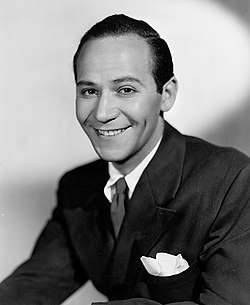



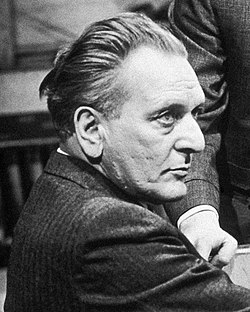














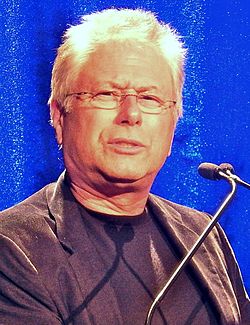







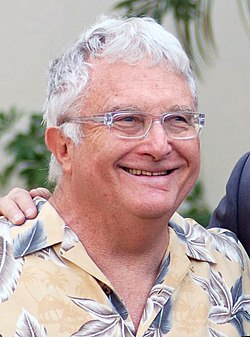

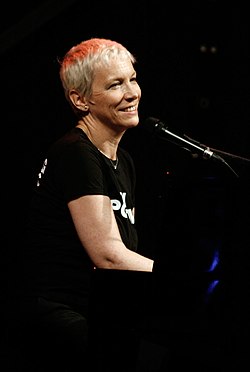










| Academy Award for Best Original Song | |
|---|---|
| Country | United States |
| Presented by | Academy of Motion Picture Arts and Sciences (AMPAS) |
| First award | February 27, 1935 (for films released in 1934) |
| Most recent winner | Clément Ducol, Camille, Jacques Audiard "El Mal" (2024) |
| Website | oscars |
The Academy Award for Best Original Song is one of the awards given annually to people working in the motion picture industry by the Academy of Motion Picture Arts and Sciences (AMPAS). It is presented to the songwriters who have composed the best original song written specifically for a film. The performers of a song are not credited with the Academy Award unless they contributed either to music, lyrics, or both in their own right. The songs that are nominated for this award are typically performed during the ceremony and before this award is presented.
The award category was introduced at the 7th Academy Awards, the ceremony honoring the best in film for 1934. Nominations are made by Academy members who are songwriters and composers, and the winners are chosen by the Academy membership as a whole. Fifteen songs are shortlisted before nominations are announced.
As of 2019 [update] , the Academy's rules stipulate that "an original song consists of words and music, both of which are original and written specifically for the motion picture. It must be clearly audible, intelligible, substantive rendition (not necessarily visually presented) of both lyric and melody, used in the body of the motion picture or as the first music cue in the end credits." [1]
The original requirement was only that the nominated song appear in a motion picture during the previous year. This rule was changed after the 1941 Academy Awards, when "The Last Time I Saw Paris", from the film Lady Be Good , with music by Jerome Kern and lyrics by Oscar Hammerstein II, won. Kern was upset that his song won because it had been published and recorded before it was used in the film. Kern was upset because he thought that "Blues in the Night" by Harold Arlen (Music) and Johnny Mercer (lyrics) should have won. Kern's song was actually written in 1940, after the Germans occupied Paris at the start of World War II. It was recorded by Kate Smith and peaked at No. 8 on the bestseller list before it was used in the film.
Kern got the Academy to change the rule so that only songs that are "original and written specifically for the motion picture" are eligible to win. [2] [3] Songs that rely on sampled or reworked material along with cover versions, remixes and parodies, such as "Gangsta's Paradise" (which samples "Pastime Paradise" by Stevie Wonder) in the 1995 film Dangerous Minds , are also ineligible.
This rule means that when a film is adapted from a previously produced stage musical, none of the existing songs from the musical are eligible. As a result, many recent film adaptations of musicals have included original songs which could be nominated, such as "You Must Love Me" in the 1996 film Evita (won award), and "Listen", "Love You I Do", "Patience" in the 2006 film Dreamgirls , and "Suddenly" in the 2012 film Les Misérables .
There was a debate whether Glen Hansard and Markéta Irglová, who were awarded the Oscar in 2008 for "Falling Slowly", were in fact eligible. "Falling Slowly" had been released on two other albums – The Swell Season , Hansard and Irglová's duo project, and The Cost , by Hansard's band The Frames. The Swell Season was released in August 2006, and The Cost in February 2007, before the release of Once . It was also used in the movie Beauty in Trouble and released on its soundtrack in September 2006. However, the AMPAS music committee determined that, in the course of the film's protracted production, the composers had "played the song in some venues that were deemed inconsequential enough to not change the song's eligibility". [4] The same issue arose two years earlier with "In the Deep" from Crash , which appeared on Bird York's 2003 album The Velvet Hour after being written for Crash, but before the film was released. The current Academy rule says an eligible song "must be recorded for use in the motion picture prior to any other usage", so recordings released prior to the film will not disqualify a song as long as the film version was recorded before then. [3]
Until the Academy Awards for 1945 (awarded in 1946) any number of songs could be nominated for the award. For the 1945 awards, 14 songs were nominated.
From 1946 to 2011, each member of the Music Branch of the Academy was asked to vote using a points system of 10, 9.5, 9, 8.5, 8, 7.5, 7, 6.5 or 6 points. Only those songs that received an average score of 8.25 or more were eligible for nomination. If no song qualified, there would be no nominees. And if only one song achieved that score, it and the song receiving the next highest score would be the two nominees. This system usually resulted in five nominations each year, except for 2010 when four were nominated, 1988, 2005, and 2008, when only three were nominated; and 2011 when only two were nominated. [5] [6]
Following the two-song competition in 2011, the rules were changed once more. Beginning with the 85th Academy Awards, the Academy established a fixed system of five nominees for Best Original Song, replacing the previous voting method that had occasionally produced fewer contenders. [7] Since then, there have always been five nominees, except in 2013 when one was disqualified.
The first film to receive multiple nominations was Fame in 1980. Only four films have featured three nominated songs: Beauty and the Beast , The Lion King , Dreamgirls , and Enchanted . Dreamgirls and Enchanted lost on every nomination: An Inconvenient Truth original song "I Need to Wake Up" defeated all three of the nominated songs from Dreamgirls, while "Falling Slowly" from Once defeated all three of Enchanted's nominations. After these two consecutive defeats, a new rule was instated in June 2008 that a film could have no more than two songs nominated. [8] While up to five songs from a single film can be submitted, studios sometimes submit only one, for fear that having two nominated might split the vote. [9] By the time "We Don't Talk About Bruno" became the breakout hit from Encanto, the producers had for the 94th Academy Awards submitted "Dos Oruguitas", which was nominated but did not win. [9]
Nominated songs are usually performed live at the televised Academy Awards ceremonies. Although pre-televised ceremonies were broadcast on the radio, the tradition of performing the nominated songs did not begin until the 18th Academy Awards in 1946, in which performers included Frank Sinatra, Kathryn Grayson, Dinah Shore, and Dick Haymes.
In the early years, the songs were usually not performed by the original artists, as in the film. For example, in 1965, Robert Goulet performed all the nominated songs at the ceremony. (In the case of "The Look Of Love", sung by Dusty Springfield in Casino Royale , the positive reaction to the performance by Sergio Mendes & Brasil '66 on the 1968 telecast led to their version being released as a single and eventually becoming the bigger hit.) In 1970, this was reversed and only the people who had performed the piece in the film were permitted to perform the song on the live telecast, even if a hit version was performed by another act.
However, since Oscar nominees for 1970, 1971 and 1972 had all been major hit records by other artists, in 1973 the rule was amended again, and it became standard to first offer either the original artist or artists who performed the song in the film a chance to perform it at the ceremony, followed by the artist or artists who had the hit record with it.
When neither of those is able to do so (or in rare cases where the telecast producers decide to go with someone else), the Academy chooses more well-known entertainers to perform the song at the ceremony. For example, Robin Williams performed "Blame Canada" from South Park: Bigger, Longer & Uncut at the 72nd Academy Awards instead of the film's voice actors, Trey Parker and Mary Kay Bergman (Bergman died a few months before the show). Beyoncé sang three nominated songs (one of which was a duet with Josh Groban) during the 77th Academy Awards even though she had not performed those songs in any of the respective films.
That same year, the song "Al otro lado del río" (On the Other Side of the River), which was featured in the film The Motorcycle Diaries , won the award, becoming the first song in Spanish and the second in a non-English language to receive such an honor (the first winner was the title tune to Never on Sunday , which was sung in Greek in the film by its star, Melina Mercouri). It was written by Uruguayan composer Jorge Drexler, but the producers would not let Drexler perform the song during the show for fear of losing ratings. Instead, the song was performed by Carlos Santana and Antonio Banderas. Drexler's acceptance speech for the award consisted of him singing a few lines a cappella and closed by simply saying "thank you".
In 1985, Phil Collins was passed over to perform his nominated composition "Against All Odds (Take a Look at Me Now)". According to representatives of both Collins' record company and Columbia Pictures, this was because the producers of the telecast were not familiar with his work. Ann Reinking performed the song instead, with Collins sitting in the audience. [10]
At the 80th Academy Awards, "That's How You Know" from the film Enchanted was performed by Kristin Chenoweth, rather than the film's star, Amy Adams. However, Adams performed "Happy Working Song", which was nominated from the same film. [11]
In 2009, Peter Gabriel, who was originally scheduled to perform his nominated song "Down to Earth" during the live broadcast, declined to perform after learning that he would be allowed to sing only 65 seconds of the song during the ceremony's Best Original Song nominee performance medley. [12] Gabriel still attended the ceremony, with John Legend performing the song in his place, backed by the Soweto Gospel Choir.
The 84th Academy Awards did not feature performances from either nominated song ("Man or Muppet" from The Muppets or "Real in Rio" from Rio ). [13] No reason for this was given by Oscar producers. This was only the third time that Best Original Song nominees were not performed (the others were in 1989 and 2010). At the 85th Academy Awards, only three of the five nominees were performed, with the eventual winner, the theme from Skyfall , being the only song performed separately on its own (by Adele) as opposed to being part of a musical montage sequence (the performance followed a tribute to the James Bond movies, including a complete performance of the theme from Goldfinger by Shirley Bassey). The 88th Academy Awards also had three of the five nominees performed. Anohni, performer and writer of "Manta Ray", one of the two nominated songs cut from the ceremony, boycotted the ceremony for this reason. [14]
It was originally announced that the 91st Academy Awards would only feature two live performances due to time constraints: "Shallow" from A Star is Born and "All the Stars" from Black Panther . [15] However, this decision was reversed days later. [16] It was announced soon after that Kendrick Lamar and SZA would no longer perform due to "logistics and timing" issues, making "All the Stars" the only nominee of the four not to be performed live. [17] Rapper Eminem's song "Lose Yourself", which won the award in 2003, was the only nominated song not performed at the ceremony that year. Eminem later gave a surprise performance of the song at the Oscars in 2020. He received a standing ovation following his performance. [18]
In 2021, performances of the nominees for Best Original Song were shown during the ceremony's pre-show, Oscars: Into the Spotlight. The live performances returned for the next year's ceremony.
In 2025, the Academy forwent live performances of the nominated songs. [19]

















































Finalists for Best Original Song are selected by the Music Branch. [105] Currently, the fifteen songs receiving the highest number of votes shall advance to the next round of voting. [106] . The following is a tabulation of shortlisted artists, by year.
| Year | Finalists | Ref |
|---|---|---|
| 1965 | "Baby the Rain Must Fall" from Baby the Rain Must Fall , "You're Gonna Hear from Me" from Inside Daisy Clover , "Never Too Late" from Never Too Late , "That Darn Cat!" from That Darn Cat! , and "Where's the Love" from The Umbrellas of Cherbourg | [107] |
| 1966 | "Any Wednesday" from Any Wednesday , "Moment to Moment" from Moment to Moment , "I'll Be Back" from Spinout , "Wish Me a Rainbow" from This Property Is Condemned , and "In the Arms of Love" from What Did You Do in the War, Daddy? | |
| 1967 | "Barefoot in the Park" from Barefoot in the Park , "When I Look in Your Eyes" from Doctor Dolittle , "The Happening" from The Happening , "In the Heat of the Night" from In the Heat of the Night , and "Wait Until Dark" from Wait Until Dark | |
| 1968 | "The Way That I Live" from The Bliss of Mrs. Blossom , "A Flea in Her Ear" from A Flea in Her Ear , "I Love You, Alice B. Toklas" from I Love You, Alice B. Toklas , "Dakota" from The One and Only, Genuine, Original Family Band , "Springtime for Hitler" from The Producers | [108] |
| 1969 | "Ballad of Easy Rider" from Easy Rider , "There's Enough to Go Around" from Gaily, Gaily , "Fill the World with Love" from Goodbye, Mr. Chips , "A Lonely Place" from Heaven with a Gun , and "The Song of Santa Vittoria" from The Secret of Santa Vittoria | [109] |
| 1970 | "Everybody Wants to Be a Cat" from The Aristocats , "Dirty Dingus Magee" from Dirty Dingus Magee , "Burning Bridges" from Kelly's Heroes , "Let It Be" from Let It Be , and "Suicide Is Painless" from M*A*S*H | [110] |
| 1971 | "Believe in Me" from Believe in Me , "Can It Be True" from The Marriage of a Young Stockbroker , "Chilly Winds" from Pretty Maids All in a Row , "Do Your Thing" from Shaft , and "Girl" from Star Spangled Girl | [111] |
| 1972 | "Moreover and Me" from The Biscuit Eater , "Theme from The Heartbreak Kid" from The Heartbreak Kid , "Silent Running" from Silent Running [e] , "Snoopy Come Home" from Snoopy Come Home , and "Serenade of Love" from Travels with My Aunt | [113] |
| 1973 | "I Got a Name" from The Last American Hero , "Send a Little Love My Way" from Oklahoma Crude , "Are You Man Enough" from Shaft in Africa [f] , "River Song" from Tom Sawyer , and "A Touch of Class" from A Touch of Class | [115] |
| 1974 | "The Next Time Around" from The Dion Brothers , "Gold" from Gold , "How to Seduce a Woman" from How to Seduce a Woman , "Freedom" from Huckleberry Finn , and "I Never Met a Rose" from The Little Prince | [116] |
| 1975 | "Lady of the Wilderness" from Gifts of an Eagle , "Let's Do It Again" from Let's Do It Again , "Somewhere" from Mister Quilp , "Once Is Not Enough" from Once Is Not Enough , and "Only a Dream Away" from Seven Alone | [113] |
| 1976 | "Lemon Drops, Lollipops and Sunbeams" from The Duchess and the Dirtwater Fox , "I'd Like to Be You for a Day" from Freaky Friday , "The Time Has Come" from Joe Panther, and "I Believe in Love" and "With One More Look at You" from A Star Is Born | [117] |
| 1977 | "Theme from New York, New York" from New York, New York and "What Was" from The Late Show | [113] |
| 1978 | "Children of Sanchez" from The Children of Sanchez [g] , "The One and Only" from The One and Only , "Move 'Em Out" from Revenge of the Pink Panther , "Can You Read My Mind?" from Superman , and "Bright Eyes" from Watership Down | [118] |
| 1979 | "I'm on Your Side" from Chapter Two , "I Hope That Somethin' Better Comes Along," "Movin' Right Along" and "Never Before, Never Again" from The Muppet Movie , and "Sold My Soul to Rock 'N' Roll" from The Rose | [119] |
| 2018 | "Treasure" from Beautiful Boy , "Revelation" from Boy Erased , "Girl in the Movies" from Dumplin' , "We Won't Move" from The Hate U Give , "Trip a Little Light Fantastic" from Mary Poppins Returns , "Keep Reachin'" from Quincy , "A Place Called Slaughter Race" from Ralph Breaks the Internet , "OYAHYTT" from Sorry to Bother You , "Suspirium" from Suspiria , and "The Big Unknown" from Widows | [120] |
| 2019 | "Speechless" from Aladdin , "Letter to My Godfather" from The Black Godfather , "Da Bronx" from The Bronx USA, "Catchy Song" from The Lego Movie 2: The Second Part , "Never Too Late" and "Spirit" from The Lion King , "Daily Battles" from Motherless Brooklyn , "A Glass of Soju" from Parasite , "High Above the Water" from Toni Morrison: The Pieces I Am , and "Glasgow" from Wild Rose | [121] |
| 2020/21 | "Turntables" from All In: The Fight for Democracy , "See What You've Done" from Belly of the Beast , "Wuhan Flu" from Borat Subsequent Moviefilm , "Never Break" from Giving Voice , "Make It Work" from Jingle Jangle: A Christmas Journey , "Rain Song" from Minari , "Show Me Your Soul" from Mr. Soul! , "Loyal Brave True" from Mulan , "Free" from The One and Only Ivan , and "Green" from Sound of Metal | [122] |
| 2021 | "So May We Start?" from Annette , "Right Where I Belong" from Brian Wilson: Long Promised Road , "Automatic Woman" from Bruised , "Dream Girl" from Cinderella , "Beyond the Shore" from CODA , "The Anonymous Ones" from Dear Evan Hansen , "Just Look Up" from Don't Look Up , "Guns Go Bang" from The Harder They Fall , "Here I Am (Singing My Way Home)" from Respect , and "Your Song Saved My Life" from Sing 2 | [123] |
| 2022 | "Time" from Amsterdam , "Nothing Is Lost (You Give Me Strength)" from Avatar: The Way of Water , "Ciao Papa" from Guillermo del Toro's Pinocchio , "Til You're Home" from A Man Called Otto , "My Mind & Me" from Selena Gomez: My Mind & Me , "Good Afternoon" from Spirited , "Stand Up" from Till , "Dust & Ash" from The Voice of Dust and Ash , "Carolina" from Where the Crawdads Sing , and "New Body Rhumba" from White Noise | [124] |
| 2023 | "Dear Alien (Who Art in Heaven)" from Asteroid City , "Dance the Night" from Barbie , "Keep It Movin'" and "Superpower (I)" from The Color Purple , "High Life" and "Meet in the Middle" from Flora and Son , "Can't Catch Me Now" from The Hunger Games: The Ballad of Songbirds & Snakes , "Quiet Eyes" from Past Lives , "Road to Freedom" from Rustin , and "Am I Dreaming" from Spider-Man: Across the Spider-Verse | [125] |
| 2024 | "Winter Coat" from Blitz , "Compress/Repress" from Challengers , "Sick in the Head" from Kneecap , "Beyond" from Moana 2 , "Tell Me It's You" from Mufasa: The Lion King , "Piece by Piece" from Piece by Piece , "Out of Oklahoma" from Twisters , "Kiss the Sky" from The Wild Robot , and "Harper and Will Go West" from Will & Harper [h] | [127] |
| 2025 | "Dream as One" from Avatar: Fire and Ash , "Our Love" from The Ballad of Wallis Island , "Dying to Live" from Billy Idol Should Be Dead, "Salt Then Sour Then Sweet" from Come See Me in the Good Light , "Drive" from F1 , "Highest 2 Lowest" from Highest 2 Lowest , "Last Time (I Seen the Sun)" from Sinners , "As Alive as You Need Me to Be" from Tron: Ares , and "The Girl in the Bubble" and "No Place Like Home" from Wicked: For Good | [128] |
| Record | Songwriter | Song | Film | Age |
|---|---|---|---|---|
| Oldest winner | Gulzar | Jai Ho | Slumdog Millionaire | 74 years, 188 days |
| Oldest nominee | Herbert Kretzmer | Suddenly | Les Misérables | 87 years, 97 days |
| Youngest winner | Markéta Irglová | Falling Slowly | Once | 19 years, 361 days |
| Youngest nominee | 19 years, 328 days |

The award has only been given to songs in languages other than English five times: in 1960 for "Never on Sunday" (Greek title "Ta Pediá tou Pireá") from Never on Sunday , in 2004 for the Spanish song "Al otro lado del río" from The Motorcycle Diaries , in 2008 for the Hindi song "Jai Ho" from Slumdog Millionaire , in 2022 for the Telugu song "Naatu Naatu" from RRR , and in 2024 for the Spanish song "El Mal" from Emilia Pérez .